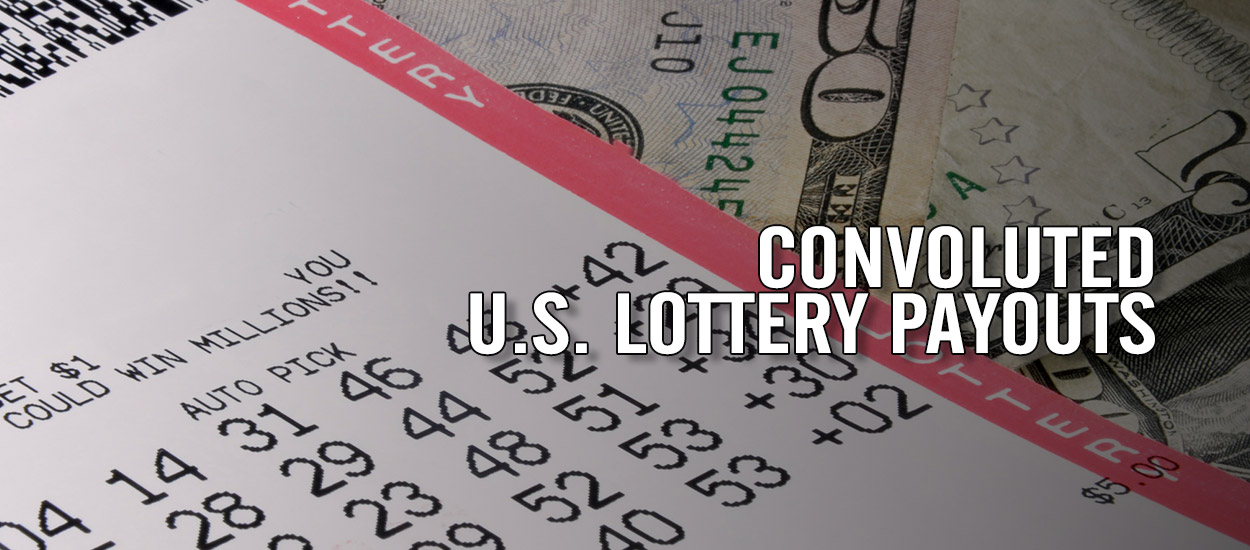The Restoration of America's Wire Act given life again
When Sheldon Adelson first convinced some cronies on the Hill to introduce the Restoration of America's Wire Act (RAWA), a bill that aims to reverse the 2011 Department of Justice (DoJ) opinion that the Wire Act only applies to sports gambling and also looks to take away the rights of states to offer online gambling (even to the states that have already implemented online gambling), most in the gambling community just saw it as the ramblings of an old billionaire who doesn't understand the Internet and fears it will somehow hurt his land based casino businesses. Consequently, there was no use to seriously look at the concerns stated in RAWA because no Democrat president was going to sign a bill that so blatantly discriminates against states and violates the 10th Amendment just to satisfy a huge Republican donor. However, with Trump's shocking win in the election and with the Republicans getting control of both the House and Senate there is a chance this thing could pass! While Trump has indicated he has no objections to online gambling and while he has benefited with the building of casinos in Atlantic City, it doesn't guarantee that he won't simply follow the wishes of the House and Senate and sign the bill if they vote in the majority to enact RAWA. Without question Vice President Pence will encourage Trump to sign the bill, since he is vehemently opposed to gambling.
To add to the concern, 10 attorney generals in Louisiana, Michigan, Nebraska, Nevada, North Dakota, South Dakota, Oklahoma, South Carolina, Texas and Utah sent a letter to Pence urging him and Trump to "help in restoring the Wire Act's provisions." Nevada's AG Adam Laxat was quickly opposed by several legislators in his state, including the Governor, but Laxat owes a debt of gratitude to Adelson for his win and this seems to be quid pro quo. It is notable that every state AG that sent the letter except for Laxat, was in a state Trump won. And on Wednesday of this week Utah Representative Jason Chaffetz will host a meeting to discuss RAWA in the House.
 So, with this bill miraculously having a chance to be signed into law it seems worthwhile to look at the concerns brought out in RAWA and examine them. It must be noted, of course, that the bill would only apply to online gambling in the United States, since offshore gambling is still out of U.S. hands. So even if this legislation is passed it will have no effect on American gamblers that like to bet at places like BetOnline, Bovada, Heritage or America's Cardroom since the legislation will only apply to websites like WSOP.com in Nevada and New Jersey as well as websites run by Harrahs, Golden Nugget, Tropicana and a few others in New Jersey.
So, with this bill miraculously having a chance to be signed into law it seems worthwhile to look at the concerns brought out in RAWA and examine them. It must be noted, of course, that the bill would only apply to online gambling in the United States, since offshore gambling is still out of U.S. hands. So even if this legislation is passed it will have no effect on American gamblers that like to bet at places like BetOnline, Bovada, Heritage or America's Cardroom since the legislation will only apply to websites like WSOP.com in Nevada and New Jersey as well as websites run by Harrahs, Golden Nugget, Tropicana and a few others in New Jersey.
1 – Online gambling must be banned because it's too easy for minors to bet online unlike at land based casinos which have more stringent ways to check the authenticity of age.
This was at the top of the pecking order for why the AGs stated they wanted to have online gambling banned, but it's also patently incorrect. I talked to people who worked at both land based and online casinos that were responsible for identifying patrons and almost to a tee each said that it was more difficult to stop underage individuals from gambling at land based casinos than online. One individual who worked at the door at a casino in Ontario, Canada before taking on a roll online said that when he was at the land based casino there were always people who you knew were under 19 years of age (the legal age to gamble in Ontario), but there was nothing he could do. Invariably a person would flash a photo ID that almost certainly was fake, but under the rules of the casino the patron could only be stopped if the photo didn't look like them, it was not a proper form of ID or there was concrete proof the ID wasn't real. As a result minors often got into the casinos without being stopped.
Online, however, it is far more difficult for a minor to set up an account or play. Firstly, all online sites in Canada and apparently in New Jersey and Nevada have a "know your customer" policy that requires the back and front of an ID card, a credit card or a bank statement and a piece of identification that proves they reside in the province or state in question, such as a utility bill to be either brought in or scanned and sent to the appropriate person at the online casino. For most under age people this isn't possible since they don't have all those pieces of ID. More importantly, because there is time to check, the online casino goes through a stringent verification process that often will raise flags and deny the registration of someone under age. At a land based casino, there is absolutely no time to do the verification checks.
2 - With online gambling it's easy to avoid paying taxes.
While this doesn't apply in Canada, since gambling winnings aren't taxable, in the United States it's a different story. And after talking to a casino representative in Nevada I'm convinced it's much easier to avoid paying taxes at land based casinos. According to the representative, cashiers only withhold taxes when winnings exceed $10,000 and unless someone is betting extremely heavily or hits a jackpot on a slot machine, the winnings are smaller. Often larger players that win substantially on card games, craps, slots or sports bets make sure they always cash out before the amount reaches $10,000 to avoid being flagged by the casino. And they cash in at intervals say $8,000 one day, $5,000 another day, $5,000 the next day etc. even though they may have won $25,000 on the trip to the casino. And often they'll simply take many of the chips home with them and cash them on their next visit to avoid detection. And really there's nothing that the casinos can do about it. The rule for cashiers simply says that if someone cashes in more than $10,000 a withholding tax will be applied. Online, however, it's impossible to avoid the withholding tax. A New Jersey casino rep told me that the software keeps track of all winnings the person has cashed at their account and they work in conjunction with other state casinos to make sure that all winnings in the state by an individual are kept track of and if winnings for a year exceed $10,000 the individual is sent a tax slip, which is also forwarded to the IRS.
3 - Money laundering and terrorist financing is easier online than at a land based casino.
This is patently incorrect. Money laundering at land based casinos has been done forever and casinos know about it, but are incapable of stopping it. I spoke to Raymond Baker, a consultant to the government on money laundering and corruption a few years back about the concern of money laundering online and he stated it was a concern:
"It's the ability to use any form of money laundering that can facilitate terrorists financing, which can parade as some other form of illicit proceeds. That's why I encourage Congress to bar all forms of illicit money coming from abroad. At least close the doors even if enforcement is problematic," he told me. However, he also indicated that the real use of land based gambling establishments to launder money was far more troubling because the government was aware it was happening.
And the Canadian province of British Columbia has launched a new anti-money laundering campaign as a result of identifying $22 million worth of suspicious currency transactions at the land based casinos last July and several million more in 2015 and 2016. To combat money laundering Finance Minister Mike De Jong stated that the government's anti-money laundering strategy will involve promoting the use of cash alternatives and restricting people from exchanging small bills for large ones.
"We're at a point now where it isn't really necessary for people to enter casinos with vast sums of cash. Operators will tell you that there is still, in some cultures, the propensity to do so," de Jong said in a press release.
But online there is no money per se, since people can't deposit cash. And money launderers aren't going to use credit cards or e-Wallets for illicit purposes because they know they will be scrutinized.
4 - Problem gambling is more prevalent online.
Included in this concern per the stopinternetgambling.com website was the belief that online gambling targets the elderly who can least afford it. This is almost laughable since most land based casinos are packed with the elderly, particularly on weekdays. And the casino buses that leave from major cities for casinos are almost always filled with people over 60. Yet talking to a colleague that keeps track of demographics at online casinos at a UK based site, less than 5% of their customers are older. By far and away the most common online customer is between the age of 30 and 50, which of course is the group most able to afford to play and is generally the most responsible. But more pointing than that is that online sites keep track of play far more closely than land based casinos do and both humans and software monitor play and if an individual seems to be betting erratically the casino can and often will stop them in their tracks. If someone is betting recklessly at a land based casino there is no one that is there to pull them away and most often the person only leaves when their last dollar is gone. In fact, every New Jersey online casino requires people to set daily deposit limits which they can't exceed and there is a countdown clock to show the person how long they have been playing. And popups will constantly be displayed encouraging the person to take a break. At land based you can count on one hand how often a pit boss or casino representative asks a patron if they need to take a break and servers offer free alcoholic drinks to encourage people to continue to gamble and keep them off their game. And of course, clocks are very difficult to find at land based casinos because the casinos don't want people to wonder whether they need a break. On the contrary, no online casino employee has ever offered an online bettor a free drink.
5- Online gambling costs casinos jobs.
The exact logic for this is listed on the stopinternetgambling.com website:
"More than 330,000 Americans work in the casino industry. Hundreds of thousands more work in industries which supported by licensed casinos. Internet gambling, especially if it includes a full assortment of casino style games, will reduce participation at brick and mortar casinos, with a commensurate impact on jobs in lodging, restaurant, entertainment and retail industries which rely on brick-and-mortar casinos."
If this was true then obviously, Caesars, MGM and others would be supporting RAWA too. But they aren't because this contention is just not true. Having talked with management at both Caesars and MGM, as well as an employee from the Tropicana in New Jersey, they have identified that the opposite is true. Online gambling does not affect land based visits because they are different animals. People who go to land based casinos see it as a form of entertainment and do so for the social aspect. They make it a weekend away and rent hotel rooms, buy meals at restaurants etc. And the ability to play online actually whets their appetite for some land based action. So, in fact online gambling has increased interest in land based play! Casinos were being shut down in Atlantic City long before online gambling was legal there but there is an indication that Atlantic City visits have increased since online gambling was approved in New Jersey. And of course, online gambling sites hire thousands of workers as well and spinoff jobs are created from that. So, in the end there is a net gain in jobs. This isn't speculation either as a representative at Caesars has told me that they now employ far more people in Atlantic City since online gambling was introduced.
So the concerns specified in RAWA are questionable at best. When a hearing is inevitable held in 2017 let's hope that everyone is presented with facts and not conjecture. When presenters start crying about concerns over the young and elderly let's hope they look at the facts and show why this is truly more of an issue at land based casinos and let's hope they address how land based casinos are not currently stopping the young or elderly from entering and wagering. If all the facts are presented openly and honestly, I have no doubt that Trump will find it difficult to usurp the 10th amendment rights of states, since online gambling is better at preventing the concerns raised by RAWA sponsors.
Read insights from Hartley Henderson every week here at OSGA and check out Hartley's RUMOR MILL!







































